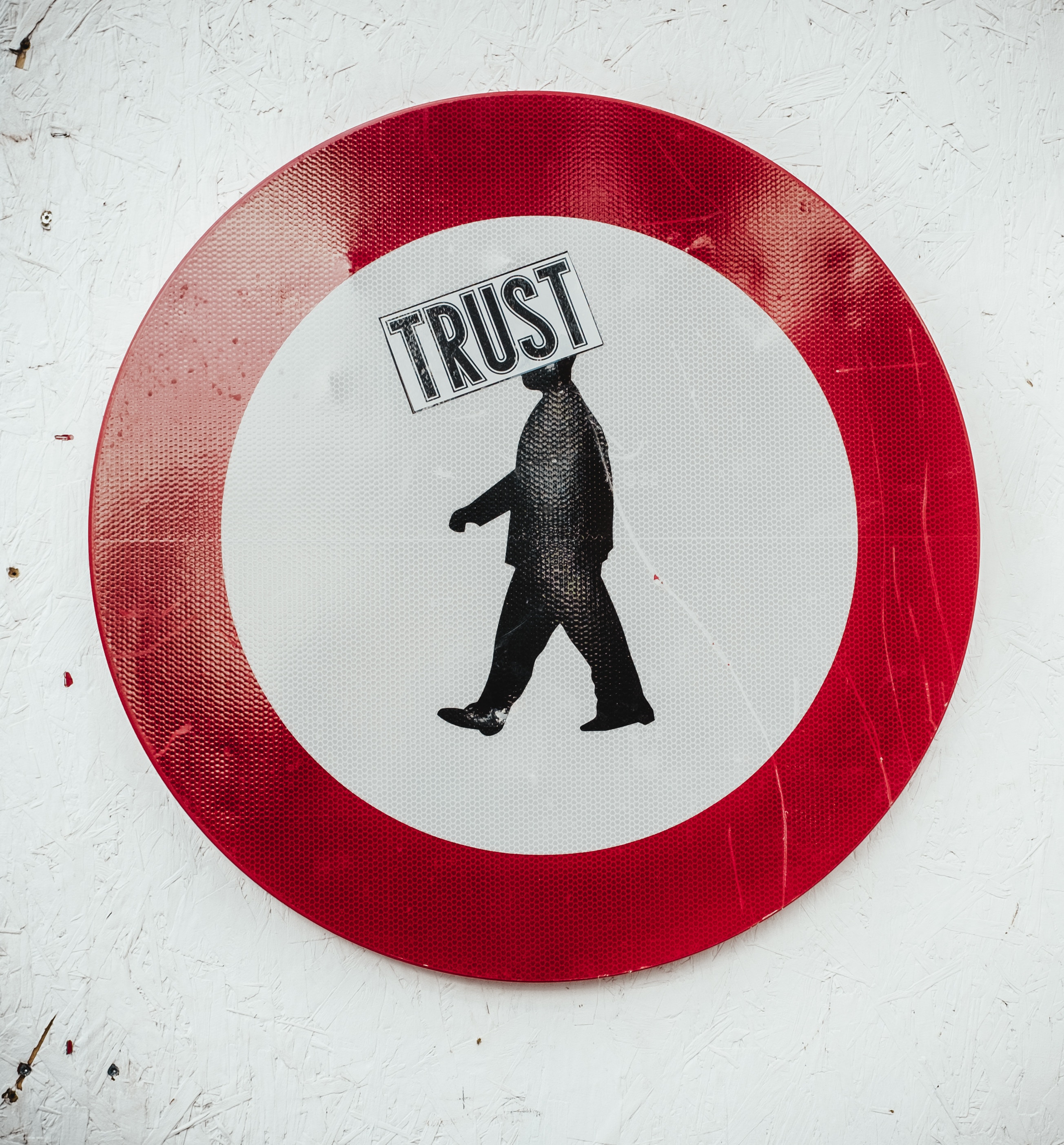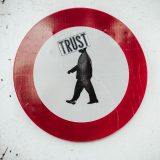How to Spot Toxic People – 9 Types to Avoid

Our life is filled with people who’ll come and go. Some of them create good feelings in us such as inspiration, belonging, love, lightness and more. Other people make us feel completely different things: irritability, fatigue, repulsion, tension and the list goes on.
In this article I want to help you identify exactly the people in your life who create negative feelings in you – ones that you aren’t supposed to get from friends, colleagues or family. Toxic people. I will help you understand why they’re in your social circle or relationship in the first place and how to get away as soon as possible.
Why Identifying and Getting away from Toxic People is so Important
Remaining indifferent when we’re in company is hard. Usually we feel a change in the atmosphere around us and in our body. This change can be very positive or very negative. The problem with toxic people is that they affect our feelings negatively, and this effect goes on to many areas of our lives: Performance at work, relationships, mental and even physical health.
For example, if we agree to be in the constant presence of a person who invokes tension in us, we actually allow his comments and behavior to destroy our health.
Another example is personal and professional effectiveness: Toxic people often have very poor emotional control and self-restraint. It’s known that the ability to manage emotions with wisdom is strongly linked to academic and professional success. So you certainly don’t want to be influenced by people who are bad at this. After all, there’s a lot of truth in the saying “You are the average of the 5 people you spend the most time with“.
And I didn’t even mention the obvious fact that being around such people… just feels terrible. I think that’s a good-enough reason to stay away from those types.
How Do Toxic People Get into Your Life?
We don’t tend to connect with people who give us bad feelings. But as in many situations in life – there are some exceptions, some pretend, and with some it’s fate that brought you together. Here are the common ways in which people get into your life and without any filtering:
- Family. Know the phrase “You don’t choose your family”? Apparently it was invented by someone who wasn’t born to very good parents or siblings in his life. We are born into the family environment seemingly at random, and we have to deal with the behavior of this family and the relatives (grandparents, uncles, cousins, spouses, neighbors who come, etc.). And as mentioned, sometimes it can be physically and / or mentally harmful.
- Childhood. As children, our ability to identify and respond to psychological issues is very weak. We’re willing to accept pretty much any person who enters our lives. On the one hand because of lack of choice (must be in the kindergarten / school every day and be around them), on the other hand because of too little life experience and no filtration. Over the years, of course, we build independence and an ability to identify people who invoke bad emotions in us – and move away. But until then, we accumulate connections that aren’t always healthy for us.
- Pretenders. Some toxic people are aware of their communicational or emotional problems. Since repairing their condition requires a serious turnaround in their personality (not easy at all) and sometimes lots of money for therapy, they prefer to pretend and hide their emotional and behavioral issues until they get in the friendship they want. This is how we meet seemingly high-quality people, and willingly agree to bond with them. Then, time does its part, and you’re already defined as friends and they feel comfortable exposing their true self.
Now that you understand how you’ve managed “to attract” problematic people in the first place, let’s talk about identifying them.
1. Jealous
As a regular reader of the blog, you will likely discover more and more jealous people in your life. The reason? Implementing the principles I offer in articles and improving yourself every day will necessarily make your life better, with time. You will experience the world with a more intelligent mind and naturally respond well to many situations – the natural result is success, women, money, respect, friendships, etc. So don’t be surprised if suddenly people attack and dislike you for no apparent reason – even though you were really good friends until recently. The bitter truth is that not everyone will be happy for you.
Jealous people are characterized by low self-confidence. When another person succeeds, they see it as a personal threat. In their eyes, the world is a zero-sum game – your success somehow sabotages theirs.
You can easily see why such people are a serious obstacle to your success. It’s hard to keep going up when you’re surrounded by negativity and cynicism toward your accomplishments. Weak men lose momentum due to others’ jealousy, which is a pity. While strong men do ignore the negativity and move on, inside they feel a miss, even loneliness – because the people who are supposed to be happy for them are doing the complete opposite.
Identify who are the people in your life that your success hurts them, who react with venomous comments and uncalled-for cynicism. Stay away from them as much as you can.
2. Self-Victimizers
In various articles on this blog I denounce the victim mentality when you, the reader, may fall into it. This time, you want to pay attention to the people around you who already live with a worldview by which they’re a victim in any situation. There are two main reasons why you want to stay away from this type:
- Finger-pointing. The self-victimizers tend to be offended at every opportunity. And if that’s not bad enough, they often point an accusing finger at those closest to them – friends, family, etc. You don’t want to be in their range when they shoot accusations all over the place.
Because of endlessly blaming the environment in their bad luck – quarrels and accusations arise. In short, an atmosphere of constant stress. The problem becomes more serious with time: Even after the storm has passed, the “victim” holds grudge, and the accused stay angry and hurt. - Contagious mentality. As I mentioned earlier, we’re all influenced by people in our environment. Some more, some less. You want to surround yourself (especially as a man who aspires to be attractive and dominant) with people who have full responsibility for their actions. Whose main questions in difficult situations are “What did I do wrong?” / “How can I fix the situation?”. In contrast to questions like “Who’s screwing me over?” / “Why do I deserve this?”.
This negativity is very contagious because it’s tempting. The temptation to choose a passive approach to coping with the problems and difficulties in life. It’s much more convenient to finger-point and whine, but certainly not effective. This is why you want to be wary of hanging around people with a victim mentality.
Look around for people who take no responsibility for their (especially wrong) actions, and regularly claim that they’ve been wronged. These are the people you want to take a step back from.
3. Volatile
There’s big difficulty in maintaining a relationship – romantic or platonic – when one person is unstable. Meaning, people who don’t keep their promises. Not necessarily because they’re evil – but things simply “come up” all the time and they make excuses. Men and women have different excuses, but there’s an amusing consistency between the sexes:
- Men: Something more important came up at the last minute.
- Women: Suddenly fell asleep or forgot altogether.
Obviously, I don’t refer to people who haven’t been able to keep their word once or twice over a long period of knowing you. Everything should be within reasonable context.
On the other hand, I’m sure you can point out quite a few people in your life that when they promise something, there’s a much greater chance that they won’t keep it than the chance they will. The kind of people who can’t be trusted at a critical moment.
The volatile behavior is also characterized by extreme moods. One day they’re nice and fun, a day after – cynical and alienated. These people are completely unpredictable, and not in the good sense of the word. With most of your company, you know what kind of feelings you will more or less have, when meeting with each person. With volatile people it’s a rollercoaster and you can’t predict what you’ll feel, and this never is a pleasant surprise.
What’s so dangerous in this persona is the difficulty you might have in making a decision to get away. I had 3 such friends (unrelated to each other). Whenever meetings made me feel bad, I started thinking about severing ties with him. The problem was that they soon returned to the character of the fun and nice friend, which made me feel like a fool. “I didn’t like him?”, I’d scold myself, thinking I judged too quickly. But after a period of ups and downs, the pattern became clear, and I realized it’s his emotional instability.
This behavior is so elusive that I fell into the same trap three times with different friends. My advice to you is to quickly identify this behavior and minimize meetings with them – don’t make the same mistake I made.
4. Passive-Aggressive
When people are angry at their close-ones, the natural and healthy tendency is to express the reasons for anger – and expect some kind of recognition, apology or even compensation. A surprising amount of people don’t behave like that. Their emotional mechanism stops them from expressing their negative emotions and resolving disputes immediately.

Passive-aggressive people will be mean to you for no apparent reason – and never explain.
Passive-aggressive behavior is characterized by implicit aggression, yet very clear. Like balancing on the thin line of “Maybe I hate you, maybe I don’t“. This behavior usually comes to the surface after the passive-aggressive person is hurt or angry at someone close to him.
Since implicit aggression almost never yields open discussion and problem-solving, with time, more negative emotions accumulate in the aggressor – and anger about an incident becomes personal hatred. The hostility becomes a routine, because the problem is no longer a specific event, but the person himself.
You can frequently see this behavior with girls in relationships (“Are you okay?” – “I’m fine…” / “What’s wrong?” – “Nothing…“). You want to have a woman and friends who talk about the problems and negative feelings right from the moment they emerge; who don’t hold grudges or slur in hopes that you’ll read their thoughts and “learn your lesson”. In short – you’re want to have assertive people around you (and be one yourself, of course).
Ways to identify passive-aggressive people:
- Insults out of nowhere.
- Unwillingness to open up and discuss or to explain what’s up between you.
- Hints to past events in which you did wrong.
5. Judgmental
No matter what kind of personal story you share: proud, regretful, angry, joyful – judgmental people will find and point out what you did wrong. Such judgment extends beyond what you say, even to everyday behavior.
Sure, you definitely want to surround yourself with people who care about you. We all need some feedback from society, because “the camel doesn’t see its hump”. However, in your life you’ll encounter people who simply get high on criticizing others. They gladly adopt the mantle of a judge, an authority – something their friends and family never agreed to. It’s easy to see why judgmental people can be intolerable. People don’t like feeling guilty or wrong.
Now, constructive criticism may be unpopular, yet people tend to recognize and receive it when it comes from a loving place that wants their best. With judgmental people, it’s nearly impossible to say a few sentences without getting shot with stifling criticism, both in quantity and quality – since judgmental people aren’t trying to help or offer a solution – they just enjoy criticizing.
If it’s important for you to be the best version of yourself and become a dominant and attractive man who believes in himself, you want to stay away from such people and be around caring people who offer constructive criticism to help you. How do you distinguish between the two?
| Criticism | Caring People | Judgmental People |
| Quantity | Small to moderate | Nearly at every opportunity |
| Type | Solution-seeking, suggestions | Mostly disapproving, negative |
| Tone | Supportive, Patient | Sarcastic, Derisive |
Personally, when it comes to being judgmental I tend to sin a lot. While I don’t ridicule or insult the person I’m criticizing, I certainly tend to overdo it and don’t always provide an alternative solution. People moved away from me because I kept telling them, almost religiously, what’s great in their behavior and what isn’t. It’s hard for me to stay quiet when something doesn’t seem 100% right or proper to me. Maybe that’s the philosophical side of me. I recently worked on reducing criticism that isn’t constructive, and my environment responds well to this change.
6. Pessimistic
You can also call them firefighters because, for some reason, it’s really hard for them to see fire and enthusiasm in people around them – and they will extinguish anyone who burns with passion.
The standard excuse is, of course, “We have to be realistic“, but it’s crucial to recognize when a person is reasonable, and when he’s just pessimistic. Know people who always see the empty half of the glass? You want to get away from this type (especially if you’re in the process of becoming alpha), because whatever the situation is, they will always predict bad things and infect you with their thinking pattern.
If the context was limited to social situations I wouldn’t bother mentioning the pessimistic type. But let’s say you’re working on a new business or startup idea: If you have some experience in entrepreneurship, you probably know how much motivation and faith you need to have, despite all the difficulties, in order to move forward and make your dream a reality. Pessimistic people who extinguish your fire are a huge danger to dreams. Here are some examples that will make it easier to identify these people:
- Something bad happened? They will say, “It can’t get any worse”.
- Something good happened? They will say, “Yes, but it’s a pity that X didn’t happen, too”.
- You have an idea? They will find why it won’t succeed, instead of why it actually might.
- They see the difficulty in every opportunity, instead of seeing the opportunity in every difficulty.
7. Drama Queens
There are people whose conflicts in life are no more than a momentary and unpleasant event that should be over quickly. In contrast, there are people for whom conflict is the fundamental material for a theatrical play called “Life”.
They will find in any misunderstanding, argument or conflict a source for a grandiose drama – and will make a really big deal out of it. If this sounds amusing to you, it’s only because you haven’t been one of the characters in the show yet. And it’s only a matter of time. The drama queens will seek to create a tragic scene made of quarrels, conspiracy, resentment and cries from any slip or word they didn’t like.
It’s very difficult to maintain such friendships, and it’s almost impossible to have a stable relationship with a girl who’s prone to over-dramatic behavior. I’m sure you know at least one person who had a girlfriend who was too dramatic (it’s extremely common). Ask him about his experience.
8. Feeling Inferior
Have you ever told a friend something amazing that happened to you, and in response, he tried to top your story with a more impressive one? Example: “Dude, I spoke to my boss and I got a $ 500 raise!”, and the friend replies: “That’s nothing! I just got a raise like this plus a company car!“. Sounds familiar? People who feel inferior do a few things:
- Disapprove your good feeling – “It’s not that amazing”.
- Turn the conversation into a competition, in which they’re obviously the winners.
- Make the conversation revolve around them in an ugly way.
Everything must be done in context, and there’s no inherent problem with competition in a conversation. But when you expect your friend to be happy for you, and instead he takes advantage of the opportunity to disregard what you’ve said and direct the subject of conversation to him – this is selfish behavior at its finest.
Feelings of inferiority stem from insecurity. Such people have difficulty accepting the fact that there’s no benefit or logic in comparing between their life and the lives of others. They think about it all the time, and grow a gnawing sense of “I’m not enough”.
Then no wonder they desperately try to diminish your success or happiness, when they can brag (mostly to convince themselves) how they beat you – at least this time.
There could also be a different motive: Getting attention from the group, by sharing a more grandiose story than yours. Either way the only source of such behavior is insecurity. And you definitely want to get away from people who are like that.
9. Calculators
People who have an imaginary notebook to write down and recall everything that everyone owes them: a few bucks, apologies, help and more.
An important thing to realize is that we all calculate. Otherwise we won’t control our give-and-take relationships with people around us – and may be exploited by others.
The problem begins, as in many cases, with exaggeration. Obsessive calculators can’t ever turn a blind eye. Every dollar, every favor, every moment they gave you is well-recorded, and they quietly expect a return.
Most people maintain a fine balance on these subjects and don’t give special attention to all the small exchanges in their lives. The result is conflict and betrayal in the eyes of the calculators – and hatred is born. Sometimes it doesn’t manifest itself immediately, but everything is recorded in their obsessive mind until some aggression begins to appear. How can you identify these types?
- They will remind you of favors they’ve done for you in the past, especially when they need something from you.
- They become hostile if you refuse to help or give them something.
- When they help you with small things, they’ll remind you (or hint) how they help even though you don’t appreciate or give in return.
- They will refuse to help you with trivial things for no apparent reason.
Friendship always includes exchange of money, time, attention and listening among people – many times without even giving it any thought. When the exchange is big or meaningful, such as loaning a lot of money – a full and proper repayment is expected. The inability of calculators to make a distinction between a serious and negligible favor creates frictions. And it’s hard to maintain a healthy relationship with such a person.

The calculators know exactly how much money or time they spent on you and expect a full refund.
Identify by Feeling
It may still be difficult for you to spot the people in your life who fit the types I’ve presented. Sometimes the best way to know is by how you feel from interacting with these people. Ask yourself:
- With whom do I feel bad after hanging out?
- What do I feel exactly? Anger, exhaustion, impatience, weakness?
- If this person doesn’t fit any of the above negative type – is he, perhaps, a mix of more than one?
- Maybe it’s just that I am the problem? Do I fit one of those types?
Look for the people who often make you feel negative when interacting with them. Even if they don’t exactly match the descriptions in the list above, it may be a combination of two types in one person. Or even that you are the problematic type. You have to consider that.
There’s No Black and White
I’ve shown pretty monochromatic character types up to this point. Good and bad. In reality, it’s not always easy (and always wrong) to label people in such an absolute manner.
Truth is, we all sinned at least once in our lives in each of the ugly behaviors I’ve shown here, and perhaps sometimes continue doing so. It’s therefore important (and fair) to look at people not in terms of “negative or positive”, but as having a range of behaviors and feelings.
But if so, where do you draw the line? I believe that the trick is to ask ourselves: “Will staying away from this person who will do me good, overall?”. Your personal wel-being should be the main consideration.
How to Deal with Toxic People
I’m always in favor of taking the simplest way. Therefore, if the social, emotional or professional situation allows – sever ties from toxic people as soon as possible. There’s no reason for you to stay within the damage zone of their emotional and behavioral imbalance.
In addition, there’s always the fear that you will be adversely affected by this dramatic act. How can you do it gradually to make things less offensive?
- Don’t initiate meetings between you.
- If you have social alternatives – take advantage of them.
- Important: Talk to the negative person in your life and explain to him your emotional challenge in his presence.
The automatic response of many toxic people will be to promise correcting their behavior – especially if you didn’t criticize them personally, but indicated that you’re not interested in continuing this relationship. I can’t say whether their promises will be kept or not. You can stop seeing them right away or give another chance and find out – just make sure that the chance you give is the last one, otherwise you’ll continue to emotionally suffer for a long time.
What If You Can’t Get Away from Toxic People
In many situations it’s impractical to sever ties with the toxic people in your life, and there’s no lack of reasons:
- They are close relatives.
- They are part of your group of friends.
- They are your colleagues.
- They are your boss.
When dealing with such cases, you want to come up with a smarter approach. Now that you can point to the type of problem (from the list above) and its cause, you can anticipate that person’s problematic behavior, and understand.
Much of the challenge of having toxic people in our lives stems from our lack of understanding. The question “Why is he like this with me?” doesn’t stop bothering us – and this, among other things, is what frustrates us so much when interacting with toxic people.
Now when you’ll experience this upsetting behavior again, you could decide not to take part in this interaction. With a logical understanding of the problematic behavior, you won’t try to beat them in their game. You reach the arena smarter and prepared. It’s much harder to agitate you when you look from above, as an observer – not as a participant. Of course, in order to not get sucked in, you must approach the interaction with toxic people using awareness. You are aware that their behavior is going to annoy you. Aware that they press people’s buttons. It’s simply their nature. Be ready for it, ignore – and you’ll be just fine.
Summary
Before I started listing the kinds of toxic people in our lives, it was important to explain why it’s crucial that you stay away from them. Damage to your self-confidence and even your health is part of why you want to distance yourself.
I moved on to the reasons why such problematic people are in our lives in the first place. Circumstances of life and childhood are the main factors, unsurprisingly.
I moved on to the list, in which I detailed the types of toxic people who simply drive us crazy. From destructive jealousy, through endless judgment, to those who calculate and record every exchange in the friendship. With all of them it’s extremely difficult to build a healthy social dynamic.
The obvious conclusion is to move away from them, but this isn’t always a practical solution. In such cases, I have good news for you: The very fact that you’ve read about these types gives you a “look from above” on their behavior. You can anticipate and understand what they do, and respond (and maybe even better – not respond) as a viewer – not as a participant. This is a huge advantage that prevents you from entering the emotional turmoil to which they draw the people around them.
I hope I helped you spot the kind of people in your life that make you feel angry, irritated, guilty, weak, etc. You now have the tools to get away from them or to deal with them with maximum efficiency.



















